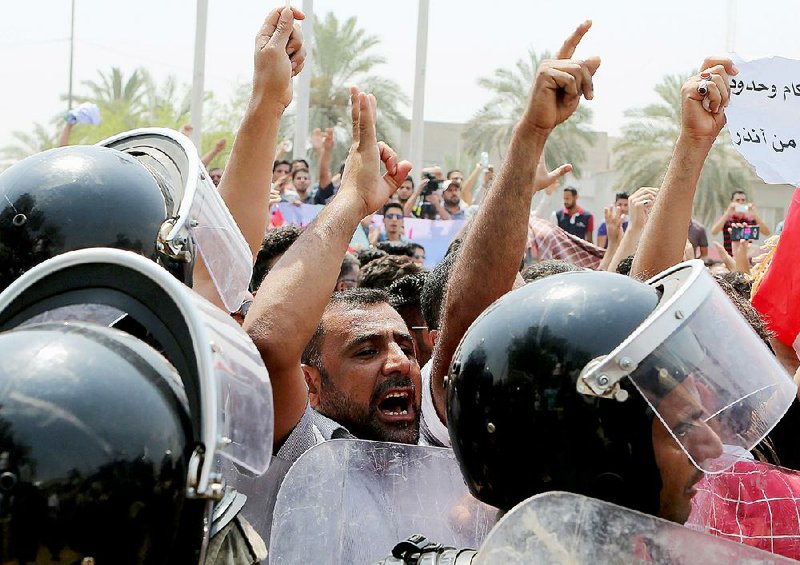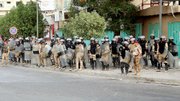BAGHDAD -- In the Iraqi summer, when the temperature rises above 120 degrees Fahrenheit, electricity becomes even more of a political issue than usual. In the past week, at the top of Iraqis' agenda, it has even eclipsed war with the Islamic State.
Prime Minister Haider al-Abadi declared a four-day weekend to keep people out of the sun. He also called in the electricity minister for emergency consultations and ordered an end to one of the most coveted perks of government officials: round-the-clock power for their air conditioners.
Now, the scheduled daily power cuts that other Iraqis have long endured are to be imposed on government offices and officials' homes.
That may not be enough for Iraqis, whose oil-rich country has not supplied reliable electricity since the U.S. invasion in 2003 in Baghdad -- and in many provinces, far longer. One of the country's largest recent grass-roots protests shut down traffic in Baghdad on Friday night, and more protests took place Saturday in southern Iraq.
Several thousand people -- workers, artists and intellectuals -- demonstrated Friday evening in Tahrir Square in the center of Baghdad, chanting and carrying signs about the lack of electricity and blaming it on corruption. They blocked traffic at a major roundabout, waiting until sundown to avoid the heat and to have more of an effect, since the streets are quieter during the day as people stay out of the sun.
Some men stripped to their shorts and lay down in the street to sleep, making a statement in a society in which it is rare to see men bare-chested in public.
Within hours, al-Abadi praised the protesters for standing up for their rights and called in the electricity minister. The minister told the parliament last month that the electricity grid would crank up to 11,000 megawatts, barely half of the summer's peak demand of 22,000 megawatts. Normal capacity is closer to 8,500 megawatts.
Earlier Friday, in the weekly sermon in the shrine city of Karbala that typically addresses the political issues of the day, a representative of Grand Ayatollah Ali al-Sistani, Iraq's senior Shiite cleric, had exhorted the government to address "the sufferings of citizens" over electricity.
"Unfortunately, every government is blaming the government that came before it," Abdul Mahdi al-Karbalai, the representative, said to the audience.
He came around only later to the subject of the war on the militants of the Islamic State extremist group, who control large parts of the country.
"The people are still patient toward the sufferings, and also they are sacrificing themselves to fight Daesh terrorism to defend Iraq," he said, using the Arabic acronym for the group. "But there are limits to patience."
That conflict made the higher-than-usual temperatures in recent days an even bigger problem. More than 3 million people have been displaced by the fighting, and many lack basic shelter to protect them from the heat.
On Saturday, residents protested in the southern cities of Basra and Karbala. Another demonstration was planned for today in the city of Babil, also in the south. Al-Abadi, in a televised address, called the protests an "early warning" sign about "an error that we must solve immediately," adding, "The people will resort to revolutionary sentiments if this situation continues."
Iraqis have been complaining about electricity at least since the United States toppled Saddam Hussein in 2003. In the resulting security vacuum, widespread looting, which U.S. troops had no orders to prevent, dismantled much of what had been left of the electricity grid, already eroded by years of sanctions and war.
"Maku kahraba. Maku amn" were the complaints leveled by many Iraqis to any American they came across back in those first days of the U.S. occupation. "There is no electricity. There is no security."
Information for this article was contributed by Omar Al-Jawoshy and Falih Hassan of The New York Times.
A Section on 08/02/2015

